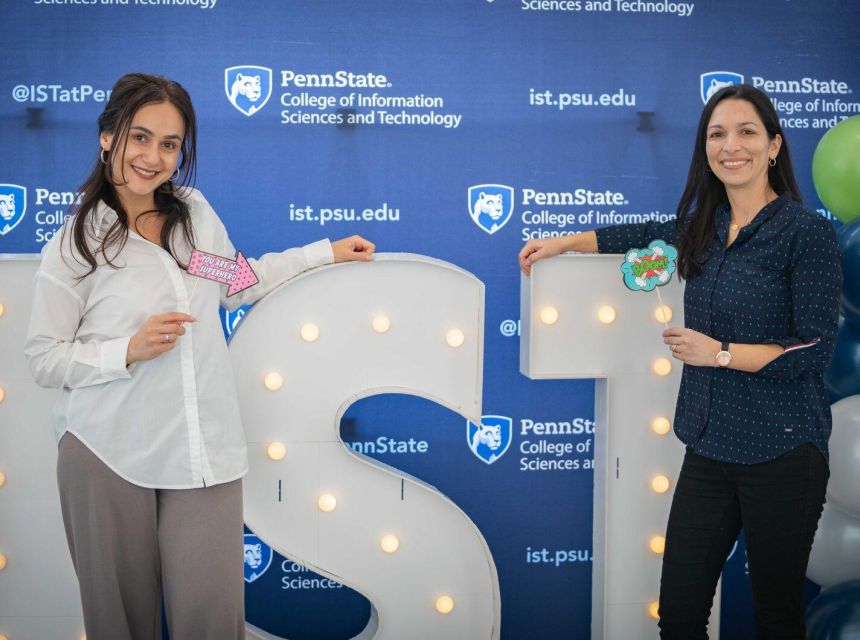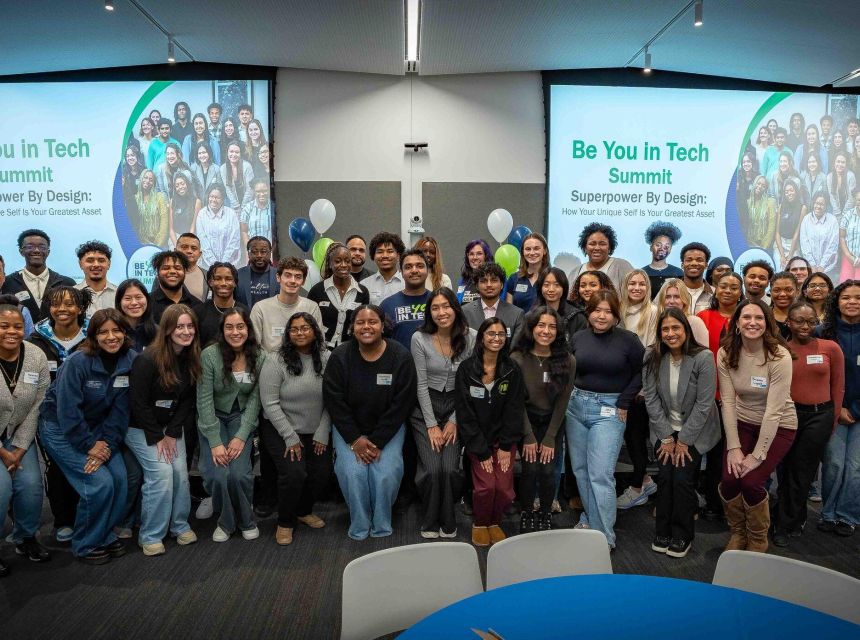The College of Information Sciences and Technology strives to create a welcoming environment that promotes and values diversity and inclusion for all students, faculty, staff, alumni, and visitors.
We uphold the belief that diversity adds significant value to every area in the college, and we recognize that both demographic and intellectual diversity create new ways of viewing the world that provide our community with a rich experience. We are dedicated to ensuring that every individual in our community feels comfortable and capable of achieving success.

Enrollment, Engagement, and Belonging
The Office of Enrollment, Engagement, and Belonging is comprised of the offices of Inclusion and Diversity Engagement, Student Engagement, and Undergraduate Recruiting. We recruit, retain, engage, and advocate for a welcoming and inclusive community.
Connect with Us
Be You in Tech
Be You in Tech is a series of events and programs that aim to inform, inspire, and empower. Every initiative is designed to help you understand the role of diversity and inclusion in your personal and professional lives through knowledge-sharing, reflection, and community building.
Be You in TechIST Diversity Resolution
On July 21, 2020, the College of IST faculty, staff, Inclusion and Diversity Action Council, and dean voted to endorse a resolution that was originally drafted by the Penn State Dickinson Law faculty on June 2, 2020. The resolution recognizes the impact of systemic racism and unequal treatment of Black Americans and other marginalized groups, as well as asserts the college’s commitment toward taking meaningful actions that integrate racial justice issues into the work we do. Though largely symbolic, it is an important action to ensure that the college as a whole states its recognition of these issues and makes a public commitment toward their resolution.
